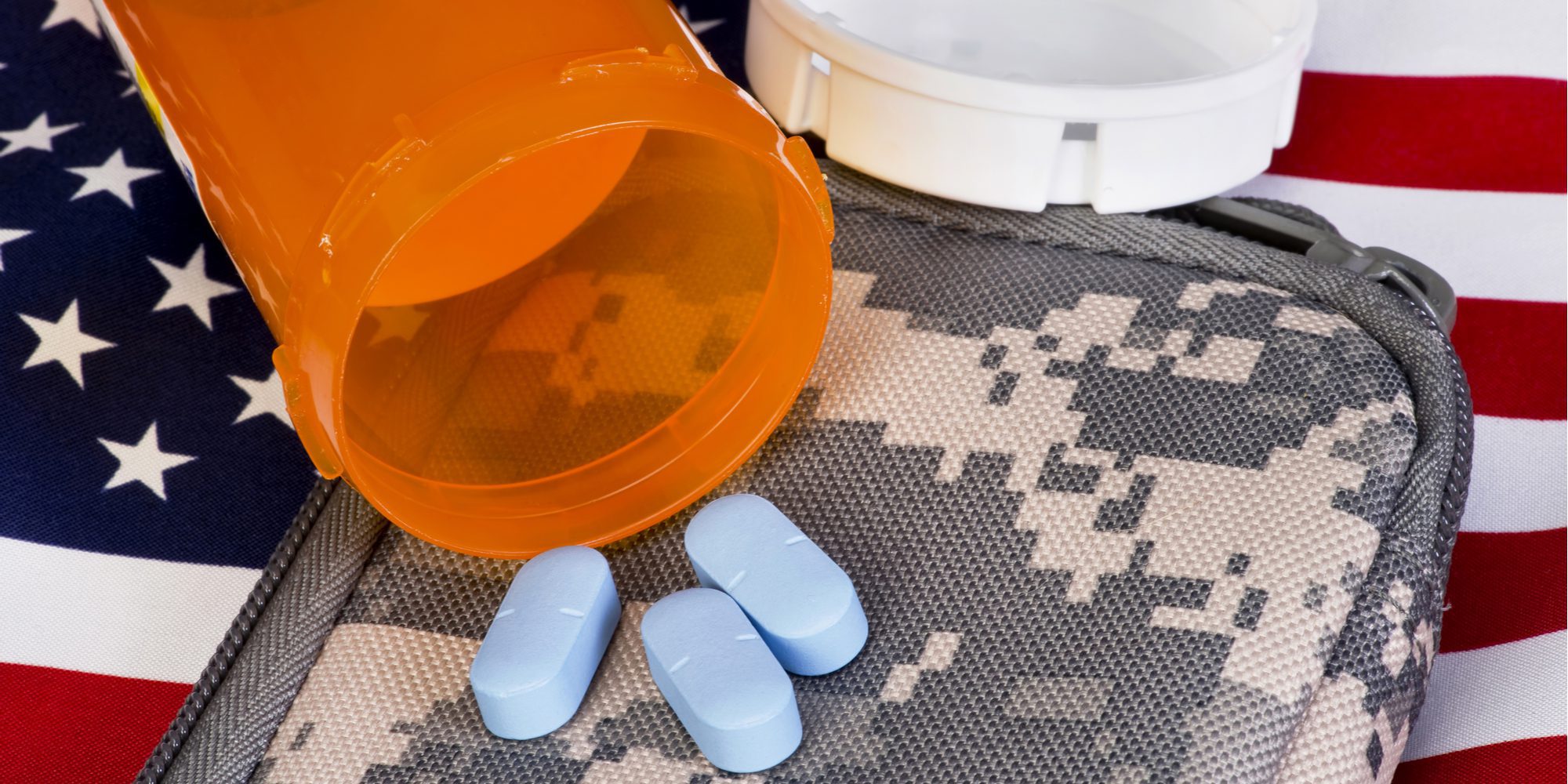When your loved one returns from military service, it is natural to worry about how they will adjust to life back home. After all, mental health conditions like post-traumatic stress disorder (PTSD) and addiction are common in veterans.
But what exactly are the warning signs of PTSD and addiction that you need to look for after a loved one comes home from service? And how can you help them through this challenging transition?
Below, we answer your questions and break down the common symptoms that many veterans face when dealing with PTSD and addiction so that you can learn what to watch for and how to get them treatment today.
Why Are PTSD and Addiction Common in Veterans?

First and foremost, it’s important to recognize that PTSD and addiction are both common issues for veterans, especially when they first return home from service. In fact, the United States Department of Veterans Affairs states that over 20% of people who have served in the military have both PTSD and substance use disorder.
Are you or a loved one in need of help?
Additionally, certain factors like a family history of mental illness, past traumatic experiences, and co-occurring mental disorders can all increase a veteran’s odds of experiencing PTSD and addiction. If you know that there are additional risk factors for your loved one, knowing the warning signs becomes even more important so that you can detect problems early.
Typically, veterans develop PTSD after going through a traumatic experience, which can include witnessing injury or death, getting in an accident, being exposed to combat, etc. They might then turn to drugs or alcohol to mask their emotional, mental, and physical pain.
You might wonder why your loved one doesn’t just seek treatment once they notice a problem. In reality, many veterans struggle to talk about all that they’ve experienced while serving. Your loved one might not talk about any of these experiences—possibly because they do not want to worry you, because the memories are simply too painful to relive, or because they don’t think that anybody else will understand.
Know that this is often not a true reflection on their relationship with you. Even in the most trusting and supportive relationships, talking about mental health struggles has become taboo for veterans. They believe they are supposed to “be tough.” This is one of the reasons why veterans don’t end up getting treatment until their PTSD and substance use disorder already have control over their lives.
However, with your support and careful eye, you might be able to catch the warning signs of PTSD and addiction and lead your loved one toward a path of healing.
What Are the Symptoms of Post-Traumatic Stress Disorder?
PTSD is a personal, complex struggle in veterans and the symptoms of this disorder can be difficult to detect. Here are some common red flags to look out for:
- Drastic changes in mood, behavior, or personality upon returning home: These shifts in behavior can present themselves in many different ways, such as your loved one becoming isolated and quieter than usual or even the opposite by engaging in reckless behaviors (unprotected sex, drinking and driving, spending excessive amounts of money, etc.).
- Nightmares and flashbacks: One of the most challenging symptoms of PTSD is coping with the memories of the traumatic event. Veterans often have vivid nightmares when asleep and flashbacks when awake that bring them right back to the traumatic event, even though they are not truly there. If you notice your loved one waking suddenly, avoiding sleep, or freezing in public places, for example, they might be having a flashback from PTSD.
- Avoidance of places and situations: Has your loved one been reluctant to go into crowded spaces? Maybe they avoid environments with loud noises or no clear exits, even though this didn’t bother them before their service. Most likely, they are avoiding places and situations that might trigger flashbacks. In the moment of a flashback, they feel that they are in danger and automatically switch to survival mode. You might notice that they “zone out,” freeze, or suddenly get the urge to bolt out of the room. These are all symptoms of PTSD.
In some cases, your loved one might show other physical signs of PTSD as well. Stomachaches, sweating, shaking, loss of appetite, sleeplessness (or sleeping too much), and decreased concentration are also all signs that indicate PTSD.
How Do I Know if My Loved One Struggles with Addiction?
Unfortunately, addiction goes together with PTSD and other mental health conditions for veterans. Once again, addiction can be hard to spot in your loved one. A common symptom is actually secrecy. Hiding these unhealthy habits makes it challenging to know if your loved one has an issue with substance abuse. However, you can keep an eye out for the following warning signs of addiction:
- Drinking, using drugs, and “partying” more than usual
- Taking prescription drugs outside of the intended use
- Needing to consume more alcohol or drugs to feel the effects
- Stealing, lying, and engaging in any behaviors necessary to get access to drugs or alcohol
- Expressions that they need the substance to “feel okay”
- Appearing drunk or high frequently
- Losing friends, jobs, and financial resources.
How Can I Help?

Getting your loved one to seek treatment for PTSD and addiction is the ultimate goal. At a treatment center, they will be able to learn the necessary skills to heal from their trauma and addiction. Therapies like cognitive behavioral therapy, EMDR, recreational activities, and veteran support groups can be great resources for your loved one to find peace in recovery.
This is not a process that they take on alone. Even though they will be working a 12-step program and going through intense therapy in the treatment center, creating a support system in you is also essential to the process. You might even participate in family therapy as well as addiction education lessons to understand exactly how you can lend a helping hand to your loved one during and after treatment.
In the end, the most important thing that you can offer to your loved one who is struggling after returning home from service is your support. Having patience and compassion for the person who you care about lets them know that you are there to help them through whatever it is they are going through.
PTSD and Addiction Treatment at Heroes’ Mile
If you feel that your loved one is exhibiting some of these classic signs of substance abuse or another mental health condition, know that the trained staff at Heroes’ Mile is here to help. Please reach out to us today at 888-838-6692 for more information or encourage your loved one to fill out our confidential online form. Recovery for your loved one and for you starts here.
Are you or a loved one in need of help?

